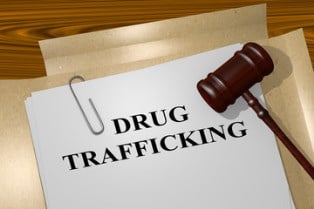All drug charges are serious, but those involving the sale or distribution of illegal substances can be particularly devastating to your future. Unless you are caught with less than half an ounce of marijuana, you may be facing felony charges for the distribution or sale of drugs in Virginia. Manufacturing, possession with intent to distribute, distribution, and sale of illegal drugs are all considered the same offense under Section 18.2-248 of the Code of Virginia. Conviction may result in prison time, fines, and a criminal record that can impact your employment and educational opportunities for years to come. 
Distribution Versus Possession
For the state of Virginia to prove that an individual intended to distribute drugs, there must be evidence that the drugs in his possession weren’t merely for personal use. The law considers several important factors in drawing a distinction between distribution and possession, including:
- Quantity. Large amounts of a controlled substance will likely lead law enforcement to suspect that the drug is intended for distribution rather than personal use.
- Packaging. You’re more likely to be accused of intent to distribute if you’re in possession of a large quantity of drugs packaged in individual bags.
- Materials. The presence of items commonly associated with the sale or distribution of drugs—such as plastic bags, vials, or weight scales—will also indicate the intent to distribute.
Factors Influencing Your Drug Distribution Charge
These factors will likely influence the severity of a drug distribution charge:
- Location. If you’re charged with attempting to sell drugs in or near a school zone, you’ll be punished far more severely than you would be if no children are near.
- Prior offenses. If you’ve been charged with drug distribution previously, you’ll likely be treated much more harshly than you were for your first offense.
Consequences of Attempting to Distribute Controlled Substances
Possession of even a modest quantity of a Schedule I or II drugs may result in distribution charges. Law enforcement will attempt to collect additional evidence such as currency, drug packaging, and scales to demonstrate that there was intent to distribute a controlled substance. Applicable penalties depend on the drug classification and may include:
Schedule I: These drugs are considered the most dangerous, with a high potential for abuse. They include heroin, ecstasy, and LSD. A conviction for the sale or distribution of smaller amounts of these drugs may result in a prison sentence of five to 40 years and up to $500,000 in fines. If the conviction involves trafficking in large quantities of these substances, the penalty is five years to life and a fine of up to $1,000,000.
Schedule II: Methadone, cocaine, and PCP also have a high potential for abuse and a serious risk of addiction. However, unlike Schedule I drugs, these have an accepted medical purpose. Distributing these drugs carry the same penalties as Schedule I controlled substances.
Schedule III. This class of drugs is less addictive than those in Schedule II and includes hydrocodone, codeine, and anabolic steroids. Attempted distribution of these substances may result in a prison sentence of one to 10 years.
Schedule IV. These are prescription drugs with a limited risk of addiction such as Xanax, Valium, and Ambien. Attempting to distribute them can result in a prison sentence between one and five years.
Schedule V. These drugs, such as codeine cough syrups, have a low potential for abuse and little addiction risk.
Marijuana. Virginia has statutory guidelines for charges regarding the distribution of marijuana:
- For quantities under half an ounce, the charge is a misdemeanor, carrying up to 12 months in jail and/or a $2,500 fine.
- For an amount between half an ounce and five pounds, you’d face a felony charge with the possibility of up to 10 years in prison.
- If the total quantity exceeds five pounds, you may be convicted of a felony charge, carrying up to 30 years in prison.
You Need an Attorney
Law enforcement in Virginia takes drug distribution very seriously. If you’re facing drug distribution charges, you need an experienced attorney to build an effective defense. Contact the attorneys of Kearney, Freeman, Fogarty & Joshi, PLLC, by using the form on this page.
|
Related links: |

